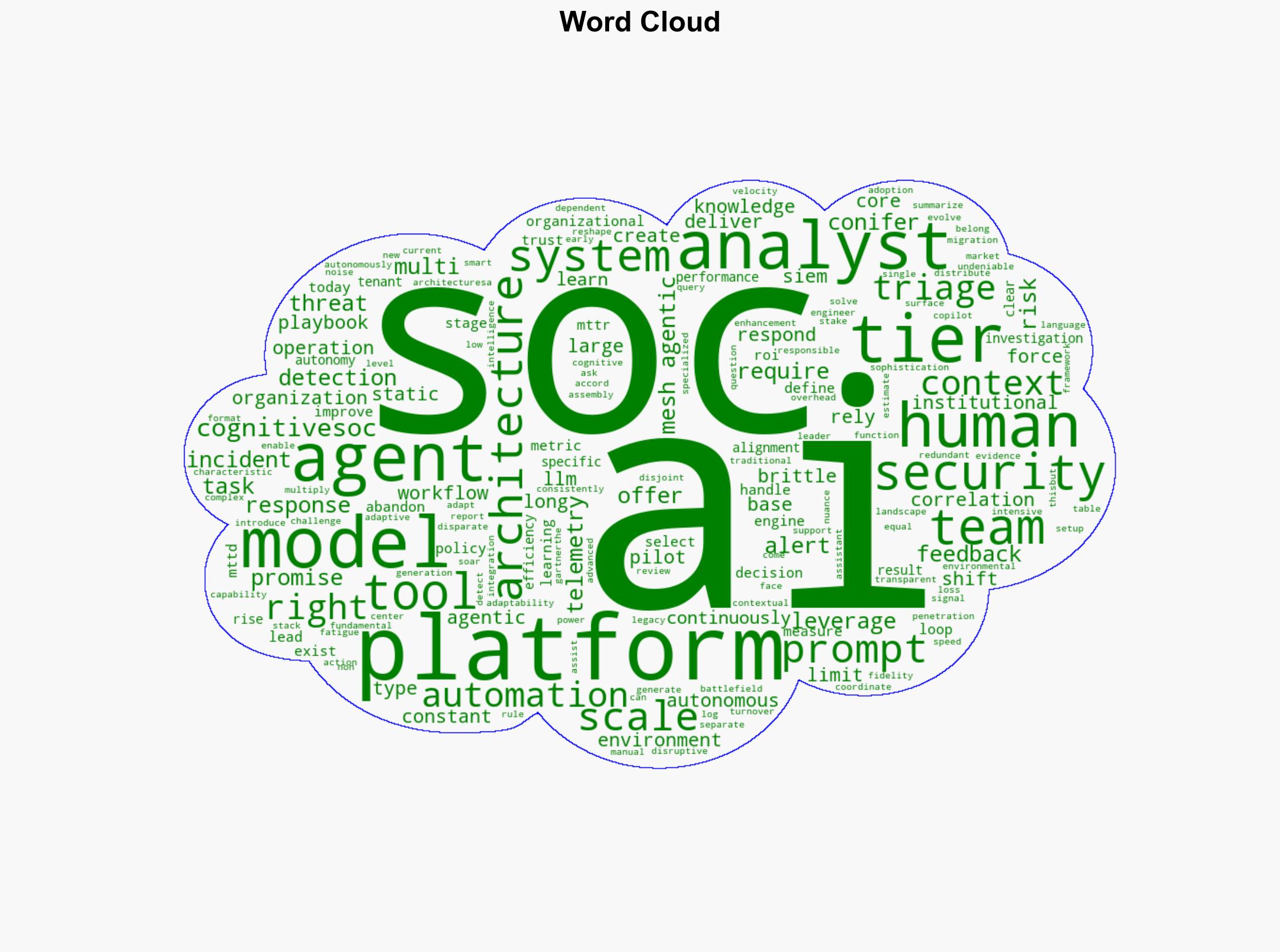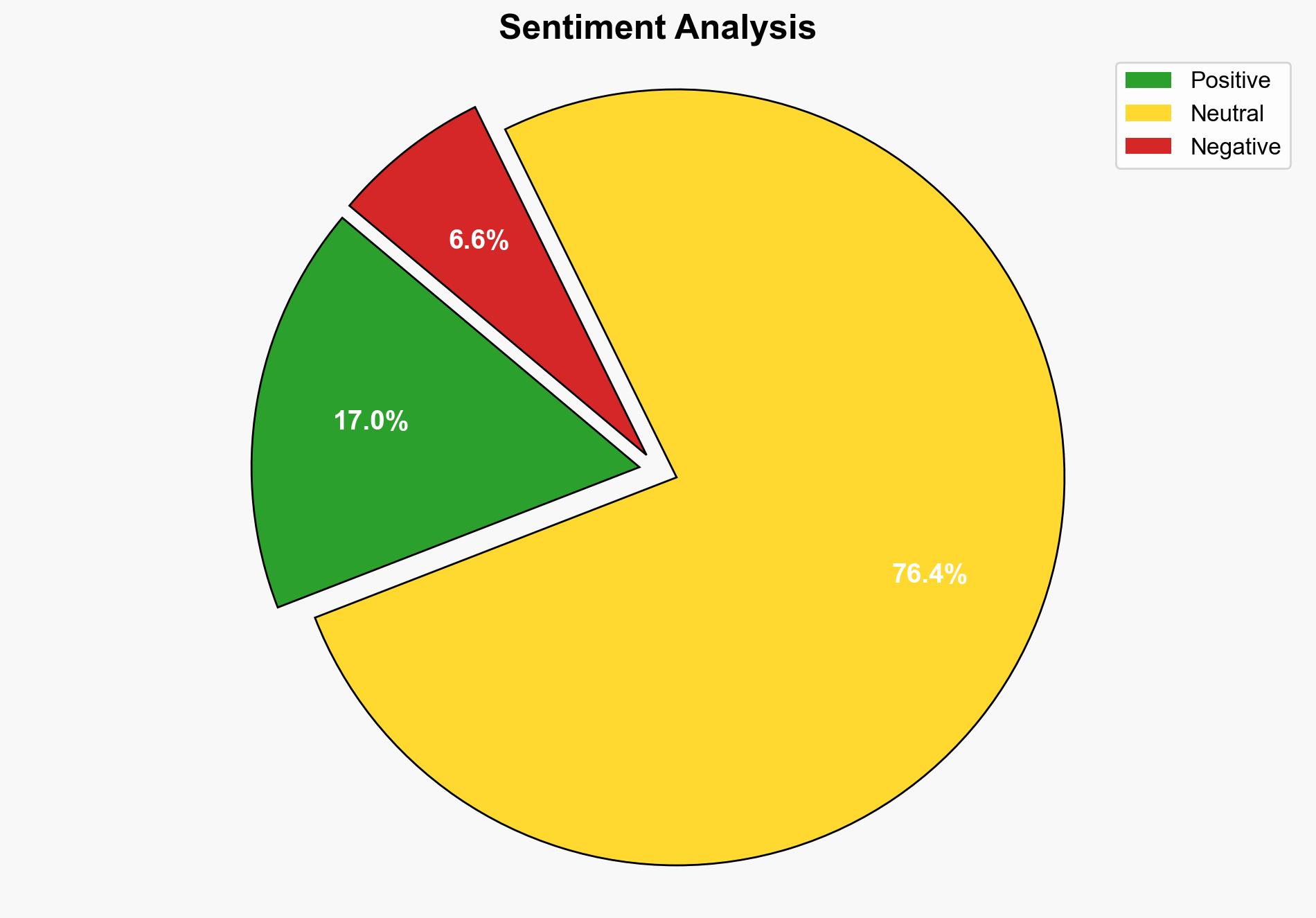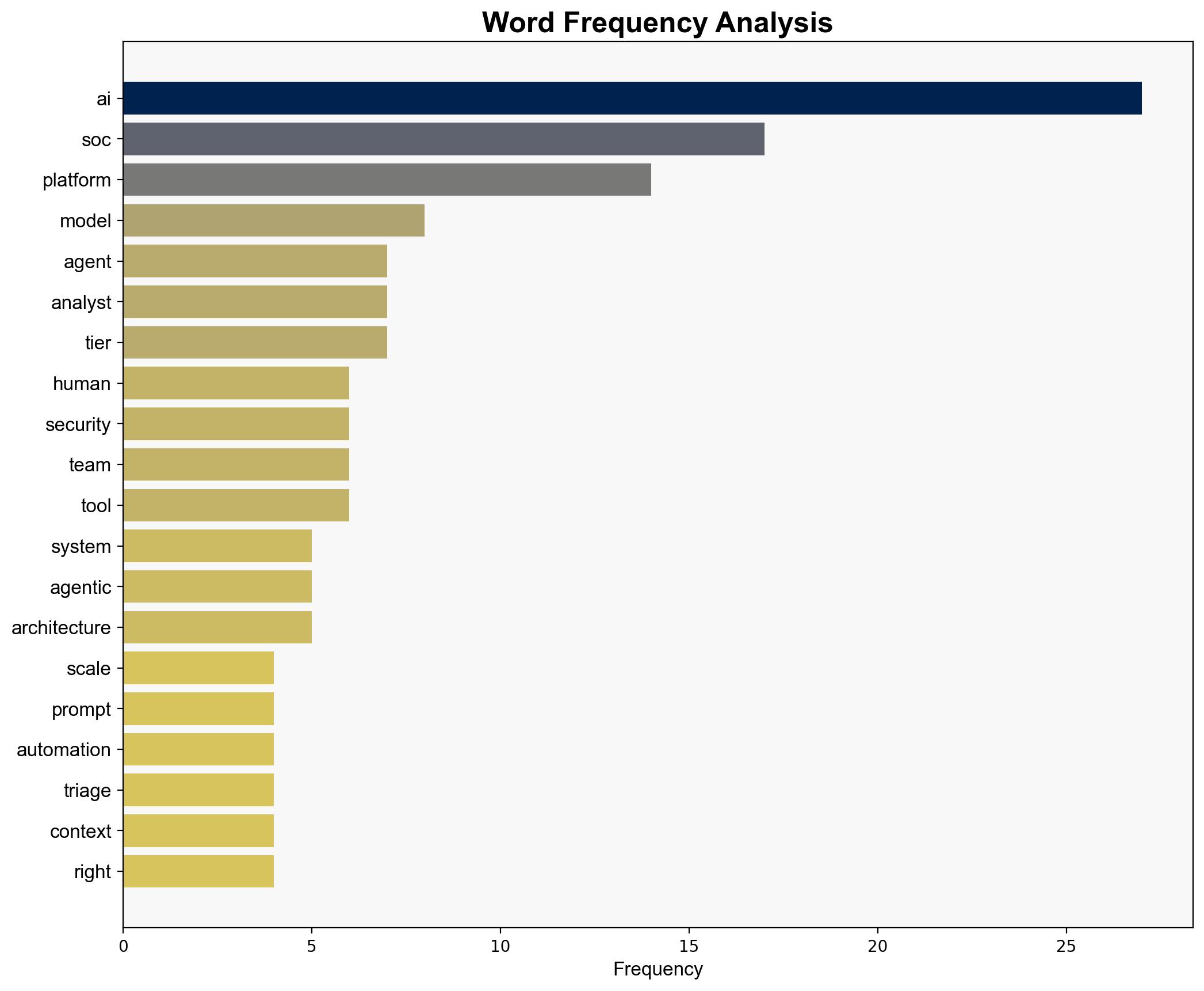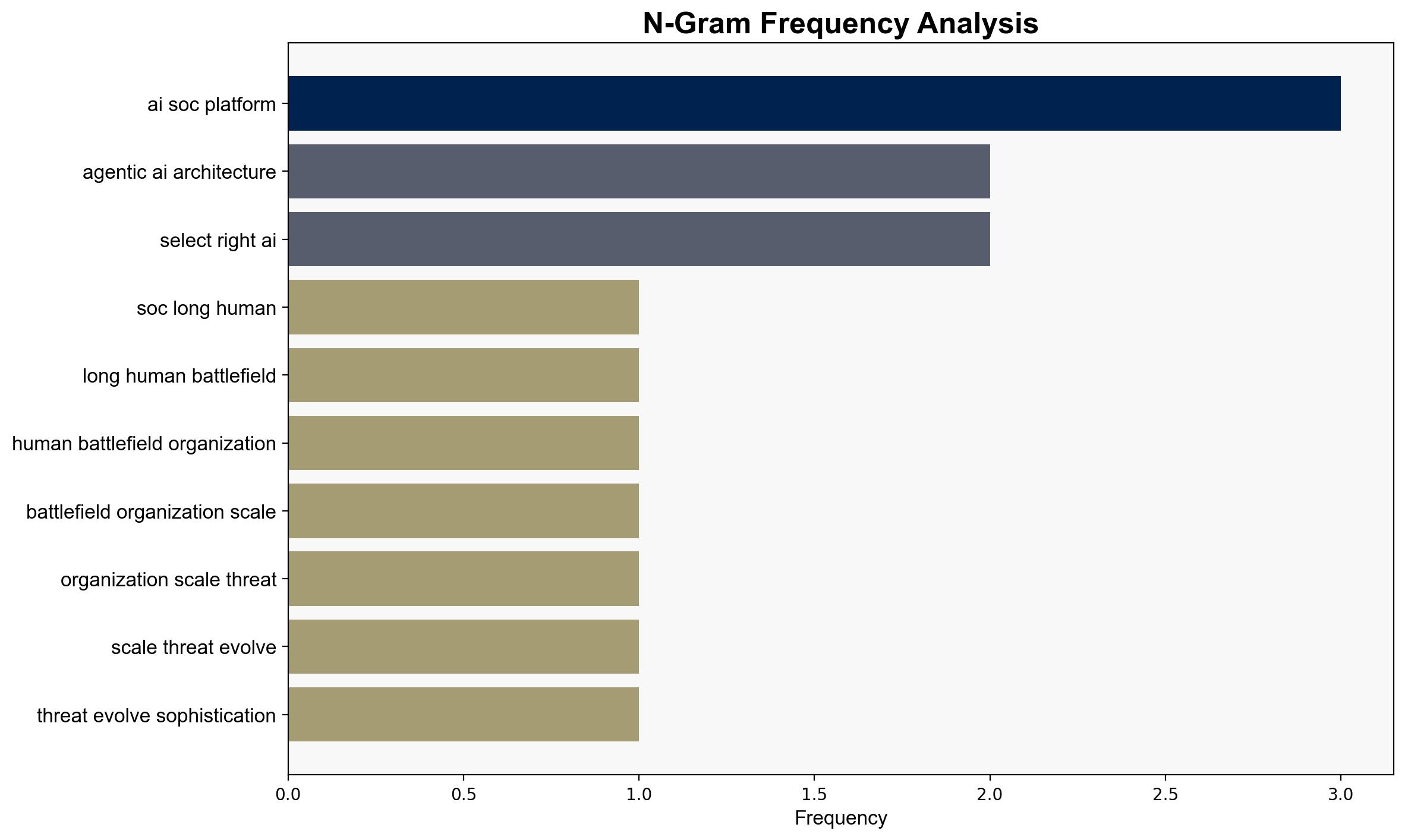The AI SOC Stack of 2026 What Sets Top-Tier Platforms Apart – Internet
Published on: 2025-10-10
Intelligence Report: The AI SOC Stack of 2026 What Sets Top-Tier Platforms Apart – Internet
1. BLUF (Bottom Line Up Front)
The strategic judgment is that AI-driven Security Operation Centers (SOCs) will increasingly rely on multi-agent systems and adaptive learning to enhance threat detection and response capabilities. The hypothesis that AI SOC platforms will evolve to integrate seamlessly with existing systems, minimizing disruption and maximizing efficiency, is better supported. Confidence level: Moderate. Recommended action: Invest in developing AI SOC platforms that prioritize integration and adaptive learning capabilities.
2. Competing Hypotheses
Hypothesis 1: AI SOC platforms will primarily evolve through the development of standalone, autonomous systems that require minimal human intervention, focusing on speed and scale.
Hypothesis 2: AI SOC platforms will evolve to integrate with existing security systems, enhancing capabilities without disrupting current workflows, through adaptive learning and agentic AI architectures.
Using the Analysis of Competing Hypotheses (ACH) 2.0, Hypothesis 2 is better supported due to evidence of current market trends emphasizing integration and adaptive learning, as well as the need to reduce friction in security operations.
3. Key Assumptions and Red Flags
Assumptions:
– AI SOC platforms can effectively integrate with existing systems without significant disruption.
– Adaptive learning capabilities will be sufficient to handle evolving threats.
Red Flags:
– Over-reliance on AI could lead to gaps in human oversight.
– Potential for AI systems to be targeted by adversarial attacks.
4. Implications and Strategic Risks
The evolution of AI SOC platforms could lead to enhanced cybersecurity capabilities, reducing response times and improving threat detection accuracy. However, there is a risk of over-dependence on AI, which could be exploited by sophisticated adversaries. Additionally, the integration of AI systems poses challenges in terms of data privacy and security.
5. Recommendations and Outlook
- Invest in AI SOC platforms that emphasize integration and adaptive learning to ensure seamless operation with existing systems.
- Develop robust security protocols to protect AI systems from adversarial attacks.
- Scenario-based projections:
- Best Case: AI SOC platforms achieve seamless integration, significantly enhancing cybersecurity capabilities.
- Worst Case: AI systems become targets for sophisticated attacks, leading to significant security breaches.
- Most Likely: Gradual integration of AI SOC platforms with existing systems, improving efficiency and threat response over time.
6. Key Individuals and Entities
No specific individuals are mentioned in the source text. Focus remains on AI SOC platforms and their developers.
7. Thematic Tags
national security threats, cybersecurity, counter-terrorism, regional focus





